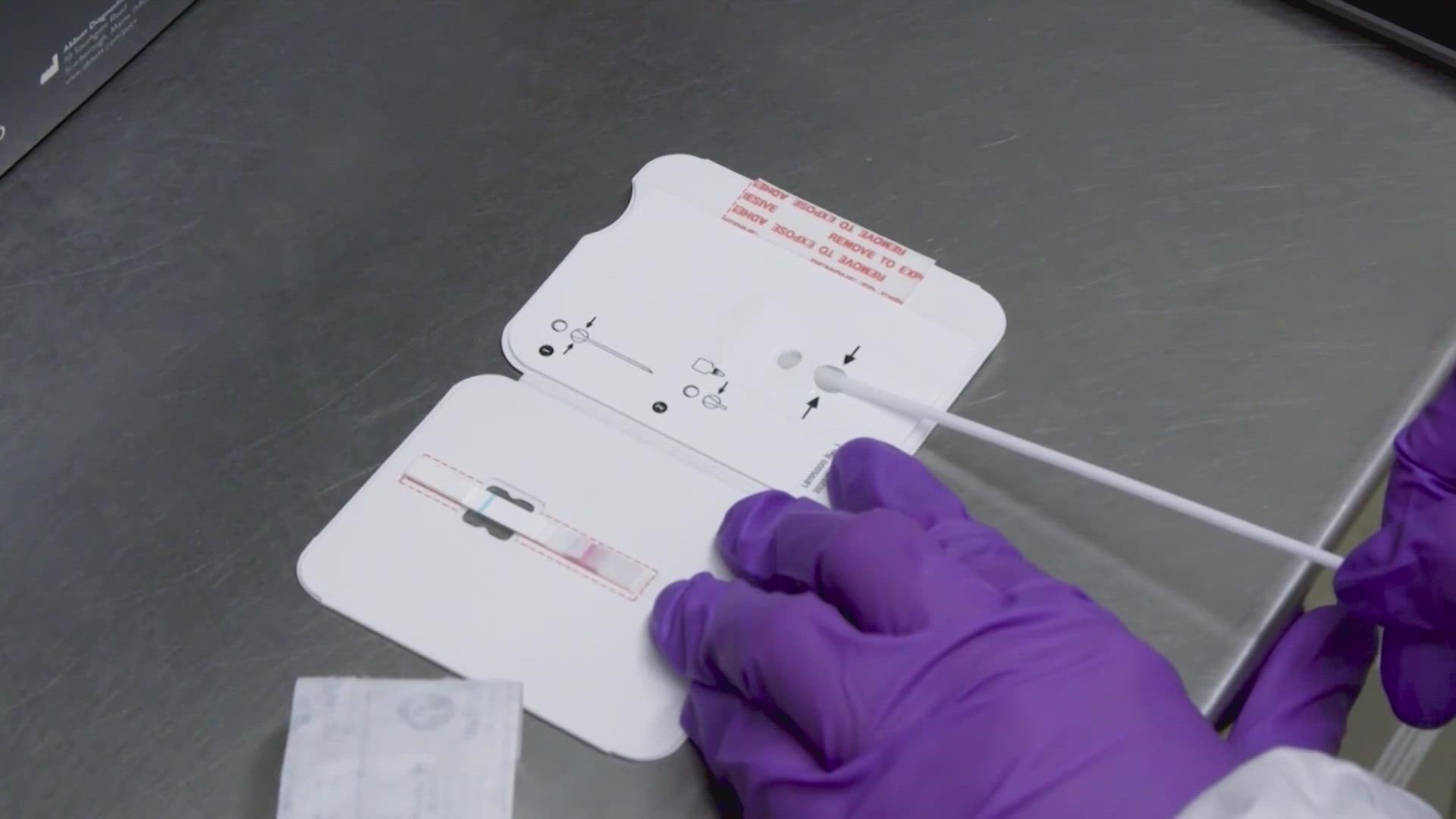DALLAS — UT Southwestern confirmed two cases of BA.2 in North Texas Thursday, a new mutation of the omicron variant of the coronavirus.
Researchers identified these BA.2 cases through genomic sequencing. Medical experts have to analyze the genetic traits of BA.2 closely in order to diagnose it, which is why some refer to this new mutation as “stealth omicron.”
“You have to do genome sequencing to identify it,” Baylor University Medical Center infectious disease physician Dr. Mezgebe Berhe said. “Any of the PCR studies, by the way, would be positive. Any of the rapid tests would be positive because they target multiple segments of the virus.”
While over 8,000 BA.2 cases have been identified since November 2021, it is unclear where BA.2 originated. Even though the first sequences were submitted from the Philippines, numerous cases have since been detected in various places, from Europe to South Asia.
The state’s first two cases of this subvariant were detected at Houston Methodist last week.
Dr. Wesley Long leads the genome sequencing lab. “Stealth omicron is similarly contagious maybe slightly more contagious, but we don’t have any reason to believe it’s any more severe,” Long said.
Medical experts agree more research is needed to learn more about BA.2.
“There is concern that it may be either more transmissible or maybe evading the current immune responses from vaccines and from natural infections,” Dr. Berhe said. “It may be more evasive, but we don't know. We're still waiting for additional data.”
The evolution of COVID-19 subvariants is not new. The delta variant also had several subvariants, but scientists referred to all of them as delta. BA.2, however, has earned its own designation due to rising numbers across several nations.
The World Health Organization classifies omicron overall as a variant of concern, its most serious designation of a coronavirus mutant, but it doesn’t single out BA.2 with a designation of its own.
“Variants are not new. There will always be variants because there is still an ongoing transmission,” Dr. Berhe. “This should not distract us from what could be life-saving: Vaccination, boosting seems to help very much because many of our patients in the hospital with complicated disease are unvaccinated.”

